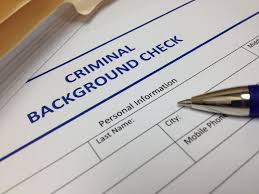 Sealing or expunging a criminal record in Florida has many benefits to the individual. For one, if you are successful in either case, you may legally deny that you’ve been arrested for that crime (except you must disclose the issue if you’re purchasing a firearm, if it was sealed).
Sealing or expunging a criminal record in Florida has many benefits to the individual. For one, if you are successful in either case, you may legally deny that you’ve been arrested for that crime (except you must disclose the issue if you’re purchasing a firearm, if it was sealed).
When a criminal history record is sealed or expunged, the public will not have access to it. Certain governmental or related entities, primarily those listed in Section 943.059(4)(a), F.S, have access to the sealed record information in its entirety. When a record has been expunged, most of the entities which would have access to a sealed record will be informed that the subject of the record has had a record expunged, but would not have access to the record itself without a court order. The response to a record search query from such an entity would be: “Criminal History Record Expunged Pursuant to Florida Statutes 943.”
Some groups or agencies such as those that work with vulnerable populations (elderly, minors) will see the date of arrest and the charge when doing their Level 1 or Level 2 background screening if your record was sealed. They will only see the date of arrest if the record was expunged.
The expungement of a criminal record means that the information related to the arrest is destroyed. This includes both the physical and the digital files. If the matter is sealed, it is protected from public view and is confidential.
Perhaps the most important feature of sealing or expungement concerns the digital files which may be sold to third parties such as Intelius. However, this is illegal if the file has been sealed or expunged.
In Florida, you are only allowed to seal or expunge one criminal case so it’s important to consult a lawyer familiar with the laws and procedures concerning sealing and expungement.
